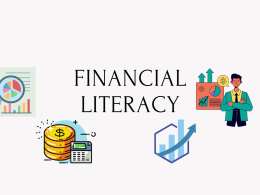Entering the world of finance can be overwhelming, especially for beginners. With countless resources available, it’s challenging to know where to start. Fortunately, several essential finance books provide a solid foundation for understanding key concepts and principles. In this guide, we’ll explore a curated selection of these books, breaking down their content and highlighting their significance for beginners. Additionally, we’ll provide analysis and comparative tables to help you navigate through these valuable resources effectively.
The Intelligent Investor by Benjamin Graham

Benjamin Graham’s “The Intelligent Investor” is often referred to as the bible of value investing. Published in 1949, this timeless classic offers timeless wisdom on investment strategies and risk management. Graham emphasizes the importance of conducting thorough research, maintaining a long-term perspective, and avoiding emotional decision-making. By focusing on fundamental analysis and margin of safety, readers learn how to identify undervalued stocks and build a resilient investment portfolio.
Rich Dad Poor Dad by Robert T. Kiyosaki
“Rich Dad Poor Dad” by Robert T. Kiyosaki is a groundbreaking book that challenges conventional beliefs about money and wealth. Through the contrasting perspectives of his “rich dad” and “poor dad,” Kiyosaki explores the mindset and habits that differentiate the wealthy from the financially struggling. This book emphasizes the importance of financial education, asset accumulation, and passive income generation. By changing your mindset and adopting the principles outlined in this book, you can achieve financial independence and security.
The Little Book of Common Sense Investing by John C. Bogle
John C. Bogle’s “The Little Book of Common Sense Investing” advocates for a simple yet powerful investment strategy: passive index investing. Bogle, the founder of Vanguard Group, argues that low-cost index funds consistently outperform actively managed funds over the long term. By minimizing fees, diversifying broadly, and staying the course, investors can capture the market’s returns with minimal effort. This book provides a compelling case for adopting a low-cost, buy-and-hold approach to investing, making it accessible to beginners and seasoned investors alike.
Analysis Table
| Book Title | Author | Key Concepts | Target Audience |
|---|---|---|---|
| The Intelligent Investor | Benjamin Graham | Value investing, fundamental analysis, risk management | Beginner to Advanced |
| Rich Dad Poor Dad | Robert T. Kiyosaki | Financial mindset, asset accumulation, passive income | Beginner |
| The Little Book of Common Sense Investing | John C. Bogle | Index investing, low-cost funds, long-term strategy | Beginner to Advanced |
Comparative Table
| Criteria | The Intelligent Investor | Rich Dad Poor Dad | The Little Book of Common Sense Investing |
|---|---|---|---|
| Investment Strategy | Value investing | Wealth mindset | Passive index investing |
| Complexity | Moderate | Easy | Simple |
| Practical Application | Yes | Yes | Yes |
| Long-Term Relevance | Highly relevant | Relevant | Highly relevant |
| Author’s Background | Investment expert | Entrepreneur | Investment expert |
Conclusion
Embarking on a journey into finance can be daunting, but with the right resources, beginners can develop a solid understanding of key principles and strategies. The essential finance books highlighted in this guide offer valuable insights into investing, wealth-building, and financial independence. Whether you’re interested in value investing, changing your financial mindset, or adopting a passive investment approach, these books provide actionable advice and timeless wisdom. By leveraging the analysis and comparative tables provided, beginners can select the most suitable resources to kickstart their financial education and journey towards prosperity.










